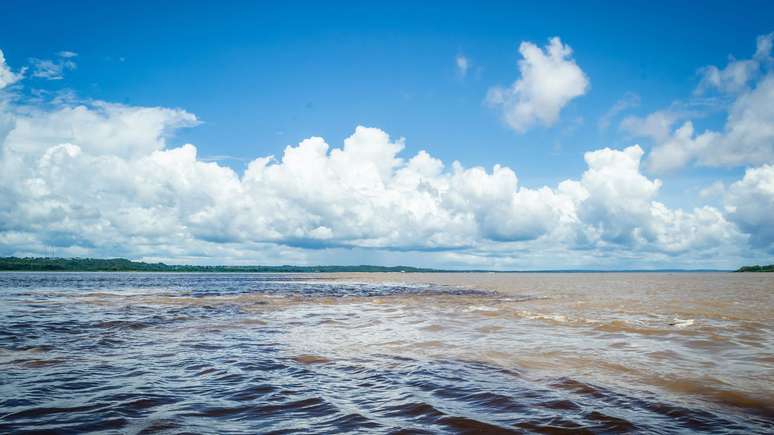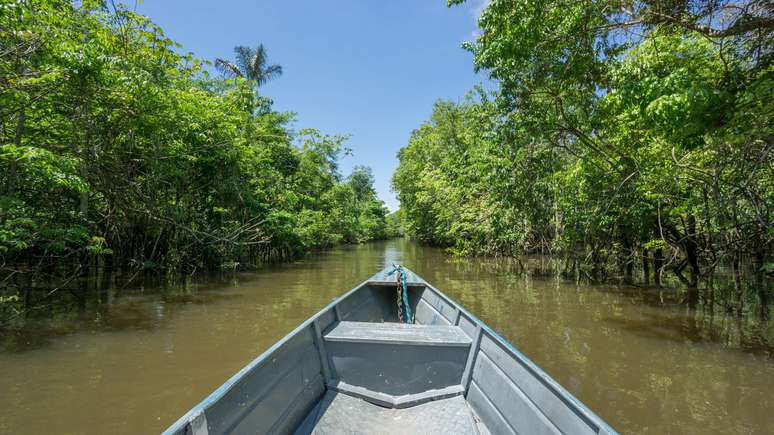Discover unique tourist experiences in Rio Negro, with incredible tours, exuberant nature and unforgettable Amazonian culture
The Rio Negro, located in the vast Amazon region, stands out as a major attraction for those seeking unique experiences in nature tourism. With its characteristic dark waters and the exuberance of the forest that surrounds it, this river attracts visitors from various parts of Brazil and the world. In recent years, the search for itineraries that favor direct contact with regional culture and local biodiversity has grown significantly.
Along the banks of the Rio Negro, small communities and river towns, such as Manaus, offer a variety of tourism activities integrated into the daily life of the region. Travelers have the opportunity to connect with ancient traditions and learn about artisanal fishing practices, Amazonian cuisine and crafts. Furthermore, boat trips and ecological routes guarantee an authentic experience, permeated by the sounds and colors of the tropical forest.
What are the main tourist options in Rio Negro?
Tourism in the Rio Negro covers a range of possibilities aimed at both admirers of natural landscapes and enthusiasts of cultural experiences. Boat trips along the river reveal impressive scenery, such as the Encontro das Águas, where the waters of the Rio Negro and Rio Solimões run side by side without mixing for kilometers. In several places, during the dry season, river islands and freshwater beaches appear, creating recreation areas at the edge of the forest.
Among the highlighted options are:
- Visits to ecotourism projects in indigenous and riverine communities;
- Photographic safaris aimed at observing birds and other animals typical of the Amazon;
- Canoe trips to explore streams and igapós;
- Bathing in warm, more acidic waters, ideal for avoiding mosquitoes;
- Food tours focus on regional ingredients, such as açaí, tucupi and Amazonian fish.
How is sustainable tourism structured in Rio Negro?
In the Amazon context, sustainable tourism practices are gaining increasing importance to protect natural and sociocultural wealth. Operators and guides work in collaboration with local residents, developing projects that strengthen community traditions without causing negative impacts on the environment. Initiatives such as environmental education tours, floating lodge accommodation and interpretive trails exemplify this commitment.
Many itineraries use boats suited to river conditions and methods that respect natural cycles. Visitors are advised to respect the fauna and flora, encouraging a presence that enhances, rather than threatens, the conservation of ecosystems. In this way, local tourism is integrated into the daily lives of the populations, generating income and training opportunities for coastal and indigenous families.

What makes tourism in Rio Negro a different choice?
In addition to the natural heritage, with forests, streams and unmistakable panoramas, tourism in the Rio Negro differs due to the combination of genuine contact with Amazonian culture and respect for the traditions of the original peoples. Experiences such as participation in cultural rituals, community festivals and traditional knowledge workshops, including the production of handicrafts or the preparation of typical dishes, enrich any itinerary through the region.
The rhythm of the Rio Negro invites tourists to slow down and observe, both during foggy mornings on the waters and late afternoons marked by colorful sunsets behind the treetops. On each journey, the Amazon presents new perspectives on the relationship between humans and nature, making each visit an opportunity for continuous learning and in-depth contact with one of the most important biomes on the planet.
In 2025, with the expansion of tourist itineraries and investments in conservation projects, Rio Negro will continue to be a reference in low-impact tourism and authentic experiences. Its importance to national ecotourism celebrates the Amazon not only as a setting, but as a source of unprecedented knowledge and diversity.
Source: Terra
Ben Stock is a lifestyle journalist and author at Gossipify. He writes about topics such as health, wellness, travel, food and home decor. He provides practical advice and inspiration to improve well-being, keeps readers up to date with latest lifestyle news and trends, known for his engaging writing style, in-depth analysis and unique perspectives.








